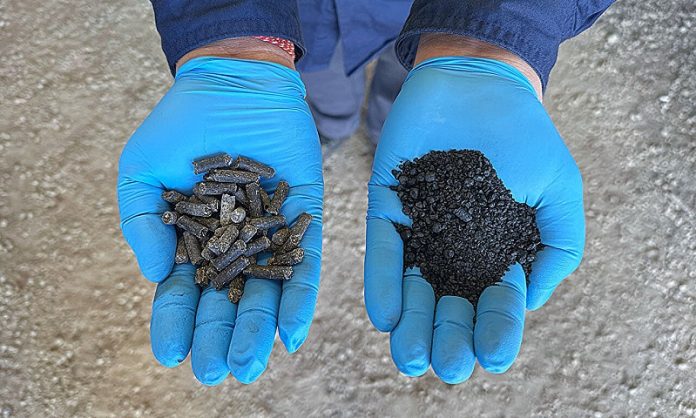
A new Australian technology could change the way we make oils for everyday products, by turning sewage into something valuable and environmentally friendly.
Developed at RMIT University, this technology—called PYROCOTM—can produce bio-oils that could replace petroleum-based oils used in industries like electronics, construction, and automotive manufacturing.
PYROCOTM works through a process called pyrolysis, which involves heating treated sewage (biosolids) to high temperatures without using oxygen.
This turns the biosolids into a carbon-rich material called biochar.
In recent research, RMIT scientists found that this biochar can act as a powerful and affordable catalyst to help create bio-oil from plant material, including native Australian plants like Willow Peppermint.
Normally, expensive chemicals are used as catalysts in these types of processes.
But the RMIT team, working with the Indian Institute of Petroleum, showed that biochar from biosolids can do the job just as well.
Not only is this a more sustainable and cost-effective approach, but it also supports a cleaner circular economy by recycling waste into useful products.
The bio-oil produced in the experiments contained high levels of phenolics—important chemicals used to make things like resins, lubricants, and additives.
In fact, about 69% of the oil was made up of phenolics, showing that the process is both efficient and effective.
RMIT’s Professor Kalpit Shah says the technology is almost ready for commercial use. The university and its partners, including South East Water and Aqua Metro, have received $3 million in Australian government funding to build a full-scale demonstration plant at a water recycling facility next year.
The project supports national waste reduction goals and aims to stop harmful chemicals like PFAS from ending up in landfills by turning biosolids into clean, reusable biochar.
Previous trials with smaller versions of the technology have already shown success. One trial at the Melton Recycled Water Plant used biosolids from five different Australian water utilities and proved that the system can remove dangerous substances like microplastics, pathogens, and up to 99.99% of PFAS.
RMIT has filed patents to protect the technology and selected Iota, the commercial arm of South East Water, to help bring PYROCOTM to the market. The goal is to offer a clean and scalable solution that benefits both the environment and industry.
As this technology moves closer to wide-scale use, it offers a powerful new way to reduce emissions, manage waste, and produce valuable bio-oils without relying on fossil fuels.



